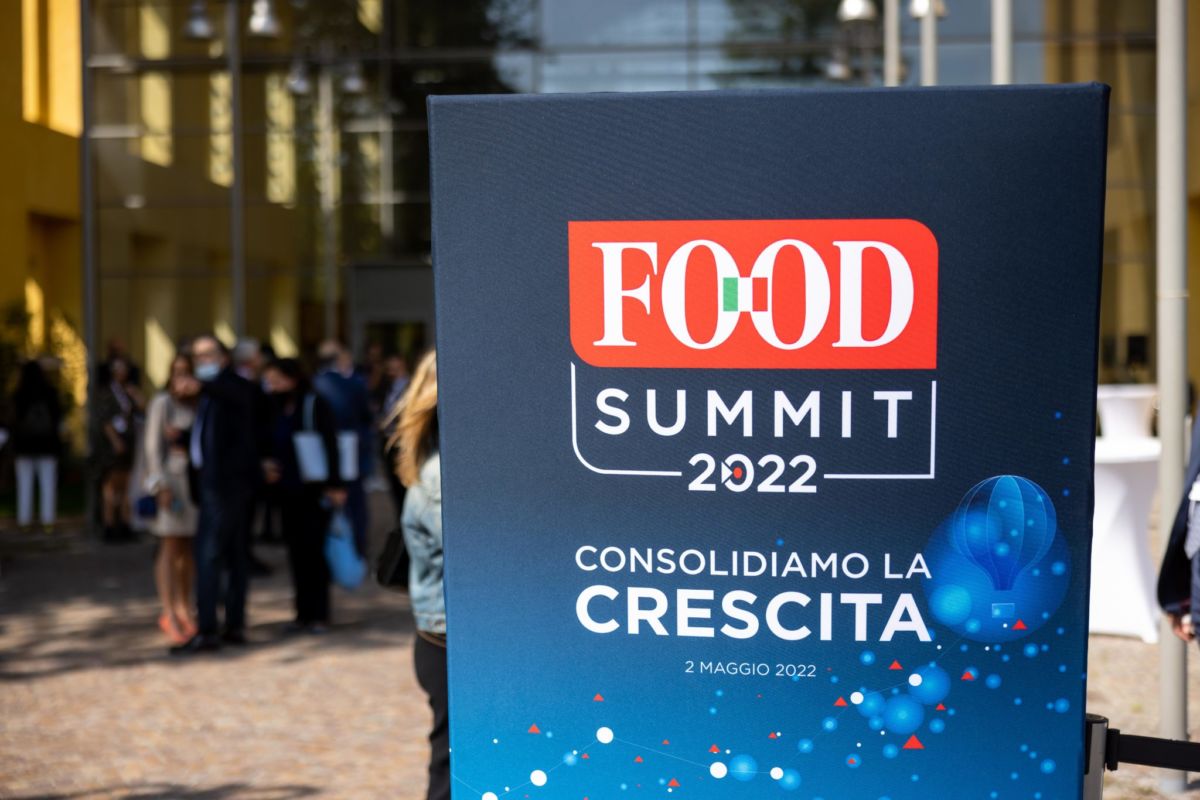
The Food Summit 2022, which took place one day before the opening of the underway edition of Cibus, gave a warm welcome to the large audience of Italian industry and distribution managers called to discuss the winning strategies to be adopted in a context of considerable discontinuity. The pandemic crisis and the ongoing conflict between Russia and Ukraine are in fact reshaping the macroeconomic scenario. But despite the gloomy hues, there are important signs of confidence and optimism.
Click here to discover the authentic Italian F&B on the Italianfood.net platform
Also this year the Food Summit was organized by the Food publishing group (in collaboration with Intesa San Paolo, Alix Partners, Cirio, Cibus, Number1, and Cleary Gottlieb). The value of great entrepreneurs said Paolo Dalcò, founder and publisher of the Food Group, in his opening speech quoting Pietro Barilla, Joseph Nissim, and Pietro Ferrero, has always been that of having ideas accompanied by a vision of the future; and this combination has generated wealth. The small stores from which these men started out have become multinational companies, their products are now global brands, and they gave birth to generations of managers.
“Today, Italian entrepreneurs are called upon to do what is in their DNA, that is, to sell goodness and beauty all over the world,” said Oscar Farinetti, founder of Eataly. But they need “the courage to implement ‘winging it’ and make difficulties become opportunities, and not to shirk the sacrifices linked to contingency.”
MADE IN ITALY, ALL SAY I LOVE YOU
The message from the founder of Eataly came at the end of a series of speeches that shed light on the great potential of the Italian agricultural and food sector, starting with exports that last year generated a value of over 50 billion euros.
“In the last 10 years – said Gregorio De Felice, Chief Economist Intesa San Paolo – Italy has gained a lot of market share in high-end products. That is, our products have a higher price and are more appreciated: and this is a strategic asset for exports. From 2017 to 2021, Italian F&B exports grew by 25% in value: from 40 to 50 billion euros. And if our forecasts are right, in the next five years they will grow even more, by +30%, for medium-high end products.”
ORGANIC LEADS THE WAY
But what are the great challenges for growth? “In our opinion,” De Felice points out, “there are five pillars in which the Italian food industry must invest: organic farming, which is increasingly central to consumers’ purchasing choices; sustainability, as everyone wants to reduce carbon dioxide emissions; supply chains, given that many agri-food companies are looking for new Italian suppliers; digital, which in times of pandemic has made e-commerce take off; and human capital. Only 8% of Italian agri-food companies (in France the percentage rises to 16%) are led by a CEO under 40 years of age.”
GEN-Z SET THE COURSE
The best point of view to talk about the future of food is that of the consumers of the future, and therefore of Generation Z. Among the various aspects emerging from the survey carried out by Alix Partners on a target group of under-25 consumers, it is striking how the Italian Gen-Z is very attentive to all issues related to sustainability, sustainable packaging, animal welfare, and local origin of products. But these consumers are very demanding and are not satisfied with a claim. The risk emerges that some Gen-Zs see sustainability as a marketing lever. Hence the need for the industry to distance itself from pure green-washing activities.


